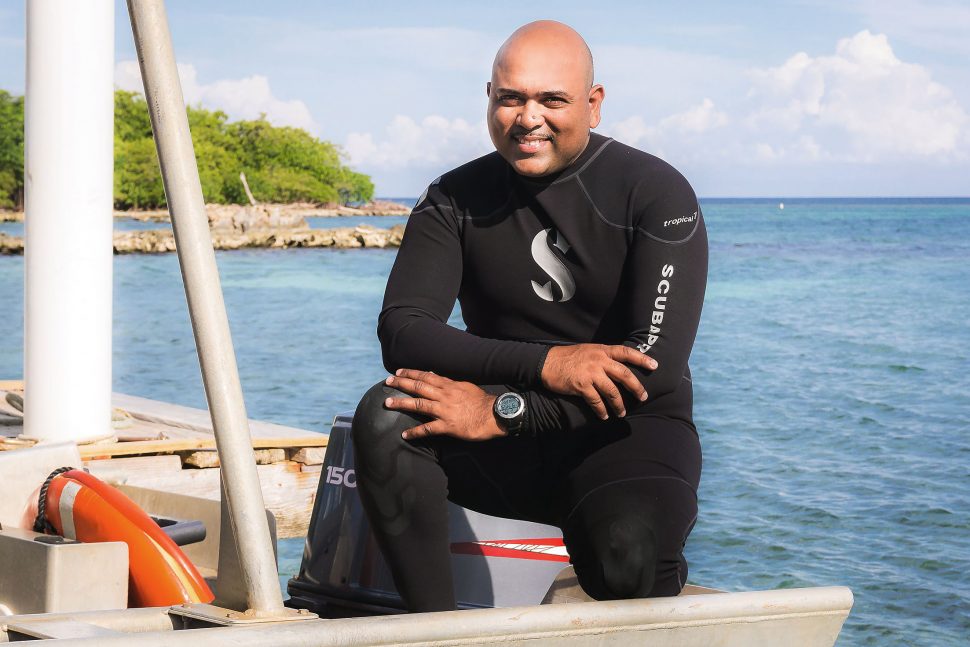(Jamaica Gleaner) One of Jamaica’s top marine biologists, Dr Dayne Buddo, has been invited to speak at the United Nations (UN) headquarters in New York City, USA, this week.
The 20th Meeting of the United Nations Consultative Process on Oceans and the Law of the Sea, running from June 10-14, will be attended by delegates from all UN member states.
The theme is ‘Ocean Science and the United Nations Decade of Ocean Science for Sustainable Development’.
Buddo is the CEO of the environmental NGO Alligator Head Foundation and also serves as research director for the Alligator Head Marine Lab, which is dedicated to the use of science to manage the East Portland Fish Sanctuary.
Buddo’s presentation will focus on international cooperation and coordination in advancing ocean science and addressing related gaps, and, more specifically, on the role of non-governmental organisations (NGOs) in supporting ocean science.
“Environmental NGOs have been leading marine conservation in Jamaica and throughout the world, and have also conducted strong scientific research to advance ocean science,” stated Buddo.
“Persons from all sectors have to work together to deal with climate change and other issues impacting ocean health. Support for the efforts of the NGOs must be paramount to governments, which have all depended on the strength of these NGOs to manage the marine resources of the country.”
The role of NGOs in supporting ocean science is key to understanding the effects of human beings on the marine environment. In many jurisdictions, NGOs have become official management entities of marine protected areas on behalf of governments.
The Alligator Head Foundation (AHF-Jamaica) has been charged with the management of the East Portland Fish Sanctuary, a 6km2 marine no-take area in the east of the island. Additionally, the AHF is the secretariat for all the 18 fish sanctuaries around the island. The AHF is the only NGO with its own marine laboratory and staff scientists.
Its research agenda is set to examine management strategies to enhance the fish sanctuary, providing an adaptive management framework for the sanctuary. This allows the management of the sanctuary to be based on science in a very active and timely manner. This includes monitoring of coral life and fish stock, water quality, habitat restoration, and watershed management.
Additionally, through partnerships with other local and international scientists, research that is related to the AHF’s mandate is conducted with the involvement of AHF’s staff scientists.





